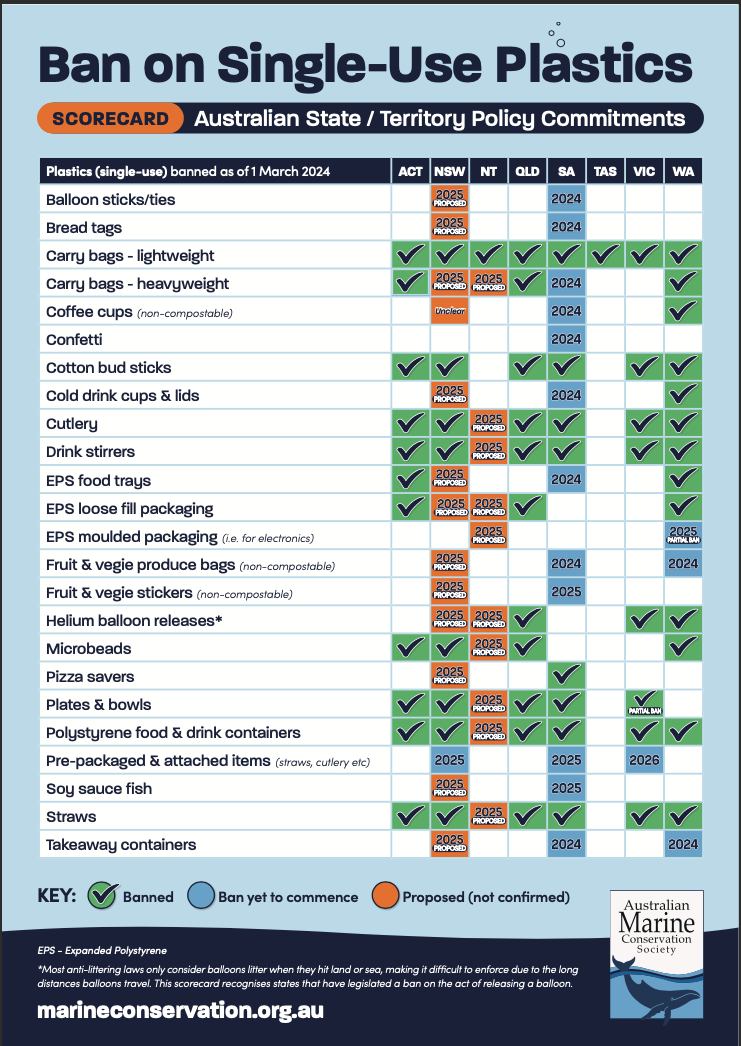Western Australia Sets the Trend: Banning Non-Compostable Takeaway Coffee Cups
In the ever-growing movement towards sustainability, Western Australia emerges as a pioneer, taking a significant step towards reducing single-use plastic waste by banning non-compostable takeaway coffee cups and saving millions of them from ending up in landfill. Also banned were unlidded disposable plastic food trays, such as sushi trays and bento boxes. This bold initiative signifies a progressive approach towards environmental conservation and sets a commendable example for other regions to follow suit.
Western Australia's decision to ban non-compostable coffee cups stems from a recognition of the detrimental impact of single-use plastics on the environment. Takeaway coffee cups, often lined with polyethylene, present a major challenge to recycling efforts, and contribute significantly to landfill accumulation. By prohibiting the use of non-compostable cups, the state aims to mitigate pollution, conserve resources, and promote sustainable alternatives.
One of the key aspects of Western Australia's initiative is its emphasis on compostable alternatives. Compostable coffee cups, made from materials such as plant-based plastics or biodegradable paper, offer a sustainable solution that aligns with the principles of circular economy. These cups can be easily composted, thereby reducing the burden on landfills, and facilitating the creation of nutrient-rich soil.
Likewise, the ban on non-compostable coffee cups is accompanied by efforts to raise awareness and promote eco-friendly practices among consumers and businesses alike. Education campaigns highlighting the environmental benefits of compostable alternatives and encouraging responsible waste management play a crucial role in fostering a culture of sustainability.
While Western Australia leads the charge in banning non-compostable coffee cups, other states across Australia are also taking steps towards reducing single-use plastic consumption.
South Australia has committed to removing single-use plastic beverage containers (including coffee cups), along with other items that such as plastic bread tags, balloon sticks/ties and single-use plastic food containers. These bans are set to come into place September 2024. A full list of items and more information can be found on the Government of South Australia, Green Industries SA website.
In New South Wales, for instance, there is a growing momentum towards implementing similar bans and promoting sustainable alternatives. Several local councils have introduced initiatives to encourage the use of reusable cups and discourage the use of non-compostable alternatives.
Similarly, in Victoria, efforts are underway to address the issue of single-use plastics, including takeaway coffee cups. Various municipalities have launched pilot programs to test the feasibility of compostable alternatives and assess their impact on waste reduction. These initiatives reflect a growing awareness of the need for proactive measures to combat plastic pollution and promote environmental sustainability.
Queensland, too, is making strides in the fight against single-use plastics. While the state has yet to implement a comprehensive ban on non-compostable coffee cups, there is a concerted effort to explore regulatory measures and incentivise businesses to adopt sustainable practices. Initiatives such as plastic bag bans and container deposit schemes demonstrate Queensland's commitment to reducing plastic waste and protecting the environment.
Overall, Western Australia's decision to ban non-compostable takeaway coffee cups sets a positive precedent for environmental action across Australia. By prioritising sustainability and embracing compostable alternatives, the state leads by example, inspiring other regions to follow suit. As awareness grows and momentum builds, Australia moves closer towards a future where single-use plastics are replaced by eco-friendly alternatives, paving the way for a healthier planet for generations to come.
The Australian Marine Conservation Society have put together this fantastic Scorecard Report.
You can download a copy for yourself by visiting their website or clicking the link above.
#sustainability #carbonfootprint #climatechange #environment
For more information, please don’t hesitate to contact us via email hello@ourfootprint.com.au or call 0414 662 445.
You can also find loads of FREE information on our website Resources page at www.ourfootprint.com.au/resources


